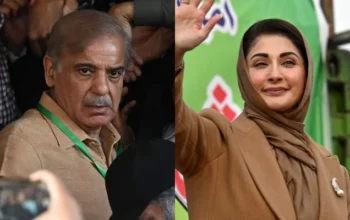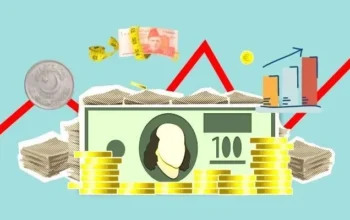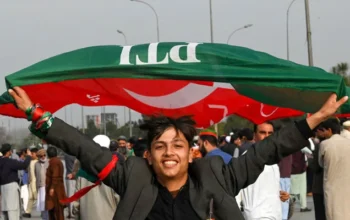In addition to its growing economic and political roles in Africa, Turkey has now rolled up its sleeves to carve out a new position as a mediator of African disputes. Ankara has received several top African officials in the last two months, with African Union Commission President Moussa Faki Mahamat the latest.
During his two-day visit to the country last weekend, Mahamat attended a series of meetings, including one with Turkish President Recep Tayyip Erdogan at the presidential palace. His visit came ahead of the third Turkey-Africa Economic and Business Forum, which will be held on Oct. 21-22. During a joint press conference with Mahamat, Turkish Foreign Minister Mevlut Cavusoglu also announced that the next Turkey-Africa Partnership Summit will take place in Istanbul in December, ending the months-long delay of the event due to COVID-19. The summit seems to be crucial in terms of its timing, as well as the evaluation of Turkish-African cooperation between 2015 and 2020.
Cavusoglu emphasized that Turkey’s approach to Africa is based on the principle that Africans should solve their own problems. However, Turkey wants to reach out to the continent by offering mediation between disagreeing parties. Through this policy, Ankara aims to defuse the tensions between African countries to protect its assets and investments there, while also gaining leverage against other foreign actors on the continent.
Erdogan recently stated that Turkey is willing to mediate between Ethiopia and Sudan to resolve a border dispute, as well as to find a peaceful resolution to the Tigray conflict in Ethiopia that has displaced tens of thousands of people. In mid-August, Ethiopian Prime Minister Abiy Ahmed paid a visit to Ankara, where he signed several cooperation agreements relating to military, defense, water and development.
Besides the significance of the deals inked, the timing of the visit was also telling. It came at a time when the African country, where Turkey is the second-largest foreign investor after China, faces challenges related to the armed conflict in the Tigray region, the border crisis with Sudan, and the dispute with Egypt over the Grand Ethiopian Renaissance Dam. Turkey’s support during these crises seems to be crucial for Addis Ababa, as Ankara has also offered to mediate with Egypt. For Cairo, which has started normalization talks with Turkey, the GERD is crucial given that the hydroelectric power project threatens its access to Nile waters.
So far, Sudan has accepted Turkey’s offer to mediate the border dispute. The acceptance came during Sovereign Council head Abdel Fattah Al-Burhan’s visit to Ankara in August, noticeably just days before Ahmed’s visit to the Turkish capital. Al-Burhan also signed several agreements with Erdogan during his visit. However, Ethiopia had previously signaled its openness to Ankara’s mediation in February, when Foreign Minister Demeke Mekonnen visited Turkey. In August, Erdogan also hosted Guinean President Alpha Conde in Istanbul, where the two leaders spoke about a coordinated strategy to develop relations further.
Turkey’s outreach to Africa dates back to 1998, when it adopted an action plan for the continent. But this plan was only implemented in 2005, which was declared the “Year of Africa” by Ankara. That year, Turkey was accorded observer status by the African Union. In a reciprocal move, the AU declared Turkey to be a strategic partner in 2008.
Over the past decade, Turkey’s engagement with the continent has taken on different dimensions in addition to the economic and political files. Ankara has tried to utilize both soft and hard power tools, with its mediator role taking care of the soft and its military presence being the hard power indication. Somalia, in particular, is a very good example of Turkey’s combination of soft and hard power elements. Ankara’s presence there has been more visible than any other outside actor, especially since a high-profile visit by Erdogan to Mogadishu in 2011 made him the first non-African leader to visit the country in 20 years.
Over the past decade, Ankara’s engagement with the continent has taken on different dimensions in addition to the economic and political files.
Sinem Cengiz
In another soft power move, Emine Erdogan, the wife of the Turkish president, recently published a book entitled “My Travels to Africa,” which is based on her impressions and memories of her time on the continent. The book, which covers visits to 23 countries — including Ethiopia, Somalia, Tanzania, Mozambique and Senegal — between 2014 and 2020, will be published in English, French, Arabic and Swahili by international publishers. She gave copies of the book to African first ladies during the UN General Assembly last month.
What is Turkey’s stake in mediating disputes in Africa? For Ankara, the escalation of Ethiopia’s domestic instability and dispute with its neighbors poses risks to its interests in the country, which Turkey considers to be its largest trading partner in Africa. The Ethiopian-Turkish cooperation agreement seeks to bolster the two countries’ ties beyond the economic and pave the way for Turkey to increase its sphere of influence in the Horn of Africa.
After China, Turkey has the largest number of companies (close to 200, employing 20,000 people) in Ethiopia, which is one of Africa’s largest markets and fastest-growing economies. When it comes to the scale and span of projects in Africa, it is hard to argue that Turkey can compete with China. However, unlike Beijing, Ankara tries to rely more on its soft power elements and attempts to carve out a niche role in resolving the disputes that challenge the continent.



